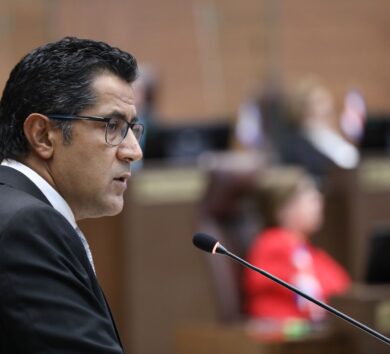

Antigua and Barbuda’s economy is growing but at an anemic level to the extent that it will not return to pre-pandemic levels until 2025.
This is the latest assessment by the International Monetary Fund (IMF), which has just concluded its Article IV Consultation with the twin island Caribbean state.
In its assessment report, which was released yesterday (June 1), the IMF reports that Antigua and Barbuda’s economy is on a gradual recovery path but facing headwinds from multiple external shocks following a sharp contraction in real output of 20 per cent in 2020 due to the COVID-19 pandemic.
According to the IMF, “the rebound is supported by tourism and construction activity, but output is expected to return gradually to pre-pandemic levels by 2025 reflecting scarring effects from the pandemic.”
Higher food and fuel prices are driving up inflation, eroding real incomes, and exacerbating fiscal and external imbalances. The external position in 2021 was weaker than the level implied by medium-term fundamentals and desirable policies.
Downside risk to IMF outlook
The IMF reports that its outlook is subject to large downside risks, including further commodity price shocks, a global growth slowdown, tighter global financial conditions, lower citizenship-by-investment programme (CIP) revenues, and natural disasters. Near-term fiscal policy should continue to focus on protecting the vulnerable against rising living costs.
The fund highlighted the importance for the government to implement a clear framework for coordination between different government entities responsible for social safety net programs to ensure efficient targeting and monitoring. Sufficient resources, it said should be allocated towards the completion and maintenance of the centralized beneficiary registry.
“An automatic fuel pricing mechanism with full pass-through of international prices, should be put in place in conjunction with targeted social protection programs, allowing the government to move away from generalised, untargeted subsidies,” was one of the IMF recommendations.
Fiscal consolidation, the IMF stated, is under way citing the need for additional revenue mobilisation to achieve the targets of the Medium-Term Fiscal Strategy.

New tax measures and limiting exemptions
“Achieving the original primary balance targets will require limiting tax exemptions, introducing new tax measures, and containing the wage bill” were also among the IMF’s list of recommendations. A public sector employment census and skills database, the IMF identified as essential, as part of a longer-term strategy to address the wage bill.

Continuing, the IMF identified that “securing long-term financing and preventing the accumulation of new arrears are critical in an environment of tight financial conditions. The authorities should maintain efforts to extend the maturity profile of their debt in the domestic and external markets in order to reduce rollover risks. There should be close engagement with creditors to put in place feasible strategies for clearing remaining arrears and new arrears should be avoided. Sustained progress on structural fiscal reforms would better institutionaliae fiscal discipline.”
The IMF advocated for “continued efforts to safeguard financial stability and strengthen AML/CFT and CIP frameworks are essential”.
“Asset quality and provisioning buffers of financial institutions should be monitored closely. A national crisis management plan should be formulated in collaboration with the ECCB (Eastern Caribbean Central Bank) to address potential risks to the financial system. Ongoing initiatives to strengthen the AML/CFT and CIP frameworks would help protect correspondent banking relationships and strengthen the integrity of the CIP,” the Washington-based multilateral added.
In addition, improving access to credit and strengthening the workings of the labour market would support the economic recovery. The IMF suggested that the insolvency law be modernized to help incentivize lending and that labour market policies should emphasize training, vocational education, and skills certification, together with job search assistance to reintegrate workers into the labor force.







Comments